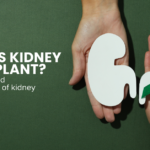
Pain in the belly button can be an unusual but concerning symptom. Many people may experience discomfort or sensitivity when pressing on their navel, and while some causes are harmless, others can indicate more severe health issues. This article explores 15 possible reasons for belly button pain, along with guidance on what to do if you’re experiencing discomfort. Let’s dive in to understand the potential causes and preventive measures.
What is the Belly Button?
The belly button, also known as the navel or umbilicus, is a small indentation in the abdomen where the umbilical cord once connected a baby to its mother during pregnancy. After birth, the umbilical cord is cut, leaving a scar that forms the belly button.
While the belly button may seem insignificant, it can sometimes become irritated or painful, signaling underlying health issues. Pain near this area can vary from mild to severe, depending on the cause, which may range from minor skin irritation to significant abdominal conditions.
15 Reasons for Belly Button Pain or Navel Pain
Let’s explore some of the most common causes of belly button pain that can occur when pressed:
- Hernia
A hernia occurs when a part of the intestine pushes through a weak area in the abdominal muscles. Umbilical hernias are common around the belly button area and can cause pain when pressed. - Appendicitis
Appendicitis is an inflammation of the appendix, often leading to sharp abdominal pain, including around the navel area, especially when pressing on the belly. - Gallstones
Gallstones are hard deposits that form in the gallbladder and can cause upper abdominal pain that sometimes radiates to the belly button area. - Irritable Bowel Syndrome (IBS)
IBS is a digestive condition that leads to stomach cramps, bloating, and changes in bowel habits. Many people with IBS report belly button pain and tenderness. - Pancreatitis
Pancreatitis is an inflammation of the pancreas, causing upper abdominal pain that may radiate to the belly button, especially when pressing on it. - Ovarian Cysts
These fluid-filled sacs form on the ovaries and can lead to abdominal discomfort, particularly if they are large or have ruptured. - Ectopic Pregnancy
An ectopic pregnancy occurs when a fertilized egg implants outside the uterus, often in a fallopian tube. This condition can lead to severe abdominal pain, sometimes felt around the belly button. - Constipation
Constipation can cause abdominal pain, bloating, and discomfort when pressing on the belly button due to built-up gas or stool in the intestines. - Food Poisoning
Symptoms of food poisoning include nausea, abdominal cramps, and pain around the navel, especially when the abdomen is tender. - Urinary Tract Infection (UTI)
A UTI can cause abdominal discomfort and pain around the belly button area, especially if the infection has spread to the kidneys. - Acid Reflux
Acid reflux, or GERD (Gastroesophageal Reflux Disease), can sometimes cause pain in the abdomen, including the belly button area. - Crohn’s Disease
Crohn’s is an inflammatory bowel disease that can lead to abdominal pain, including around the belly button, along with other digestive symptoms. - Diverticulitis
Diverticulitis is the inflammation or infection of small pouches in the digestive tract, causing pain that can sometimes be felt in the belly button area. - Bloating
Digestive issues like bloating or gas buildup can make the abdomen feel tender, with discomfort around the navel area when pressed. - Muscle Strain
Strained abdominal muscles due to overexertion, heavy lifting, or even a coughing fit can lead to localized pain around the belly button.
Do’s and Don’ts During Belly Button or Navel Pain
Here are some guidelines to follow if you are experiencing pain in the navel area:
Do’s
- Clean the Area: Gently wash the area with mild soap and water to avoid infections.
- Apply a Warm Compress: Placing a warm cloth over the belly button may help relieve discomfort.
- Take OTC Pain Relievers: Nonsteroidal anti-inflammatory drugs (NSAIDs), like ibuprofen, can help reduce pain and inflammation.
- See a Doctor: If the pain is persistent, worsening, or accompanied by other symptoms, it’s crucial to consult a healthcare provider.
Don’ts
- Avoid Tight Clothing: Tight clothing can irritate the belly button and cause additional discomfort.
- Don’t Ignore Severe Pain: Even if the pain seems minor, don’t overlook it, as it could indicate a serious condition.
- Do Not Insert Objects: Avoid inserting anything into the belly button, as it can introduce bacteria and lead to infection.
Prevention Tips for Belly Button Pain
Taking care of your belly button and abdominal health can help prevent potential issues. Here are some ways to keep your navel healthy:
- Practice Good Hygiene: Wash and dry the belly button regularly, especially after workouts or bathing.
- Wear Comfortable Clothing: Avoid tight or abrasive clothing that can rub against the navel and cause irritation.
- Avoid Piercings: Belly button piercings can lead to infections, so if you have a piercing, be vigilant about cleaning it.
- Follow a Healthy Diet: Eating a balanced diet helps avoid digestive issues like constipation and bloating.
- Seek Prompt Medical Help: If you notice any pain, swelling, or discharge from your belly button, seek a medical professional’s advice promptly.
Conclusion
Belly button pain can arise from various causes, ranging from mild skin irritation to serious abdominal conditions. While some cases may be harmless, persistent or severe pain should never be ignored. By maintaining good hygiene, wearing comfortable clothing, and consulting with a healthcare provider when necessary, you can minimize the risk of belly button discomfort.
If you are experiencing ongoing belly button pain, especially if accompanied by other symptoms, consider seeking medical help for a proper diagnosis. Remember, caring for your belly button is a small but important part of overall health.



